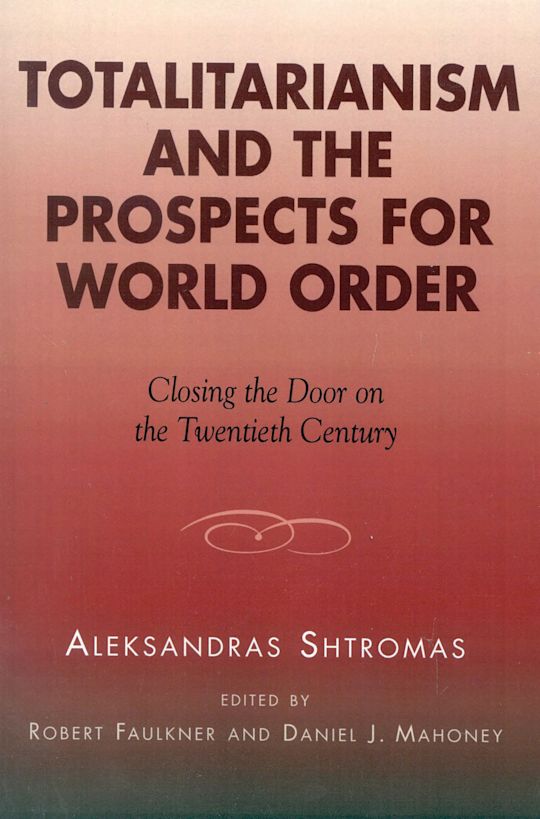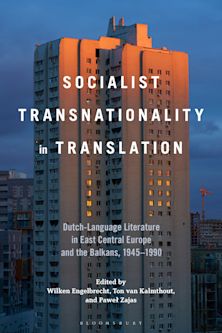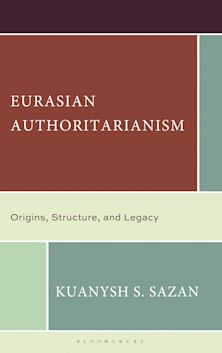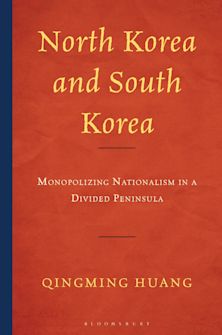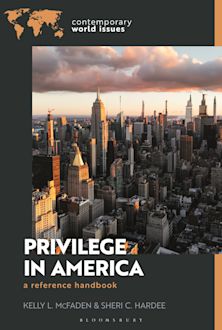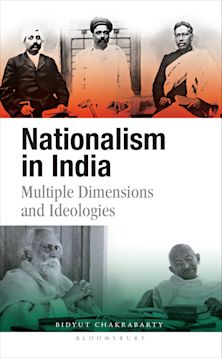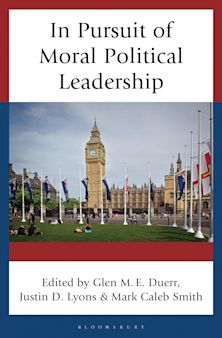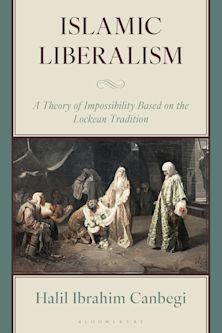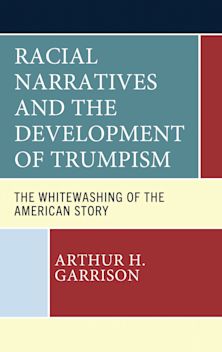- Home
- ACADEMIC
- Politics & International Relations
- Political Ideologies
- Totalitarianism and the Prospects for World Order
Totalitarianism and the Prospects for World Order
Closing the Door on the Twentieth Century
Totalitarianism and the Prospects for World Order
Closing the Door on the Twentieth Century
This product is usually dispatched within 2-4 weeks
- Delivery and returns info
-
Flat rate of $10.00 for shipping anywhere in Australia
You must sign in to add this item to your wishlist. Please sign in or create an account
Description
Concentration camp survivor, former Marxist-Leninist and Lithuanian patriot, Aleksandras Shtromas devoted his life to understanding totalitarianism and political change. He was a remarkably prescient thinker and is probably best known for his prediction of the fall of the Soviet Union, forecast at a time when the mighty empire seemed almost invincible. This posthumous collection of writings, edited by Robert Faulkner and Daniel J. Mahoney, addresses some of the topics that preoccupied Shtromas throughout his life, including totalitarian regimes, postcommunist transitions, the fates of the Baltic states, and the nature of political revolutions. Readers of Totalitarianism and the Prospects for World Order: Closing the Door on the Twentieth Century will encounter not just a learned and impressive scholar, but also a great man who confronted monstrous evils in his lifetime.
Table of Contents
Part 2 Autobiographical Reflections
Part 3 Looking Back at the Main Challenges of the Twentieth Century
Chapter 4 The Jewish and Gentile Experience of the Holocaust: A Personal Perspective
Chapter 5 Making Sense of Stalin
Chapter 6 Marxism-Leninism in the USSR
Chapter 7 To Fight Communism: Why and How?
Chapter 8 The Inevitable Collapse of Socialism
Chapter 9 Dissent, Nationalism, and the Soviet Future
Chapter 10 On Totalitarianism and the Prospects for Institutionalized Revolution in the USSR and China
Chapter 11 Ideology and Conflict: Does Warfare Betwen "Isms" Belong to Past History?
Part 12 Post-Communist Transitions
Chapter 13 The Transition to a Free market System: The Hillsdale Plan and the Other Plans
Chapter 14 What Should Be the Next Stage in the Process of Russian Reform?
Chapter 15 To Expand Beyond Enlargement: A Few Thoughts on Preserving NATO's Original Identity without Hindering Its Transformation into a Euro-Atlantic Collective Security System
Part 16 The Baltic Pendulum
Chapter 17 The Soviet Method of Conquest of the Baltic States: Lessons for the West
Chapter 18 The Baltic States as Soviet Republics: Tensions and Contradictions
Chapter 19 How Political are the Social Movements in the Baltic Republics?
Part 20 Theoretical and Practical Considerations on Revolution and Political Change
Chapter 21 How Revolutions Proceed
Chapter 22 Political Change and Political Collapse
Part 23 Looking Toward the Challenges for the Next Century
Chapter 24 The Strategy for Peace in a Changing World
Chapter 25 The Future World Order and the Right of Nations to Self-Determination and Sovereignty
Chapter 26 What is Peace and How Could It Be Achieved?
Chapter 27 Nations, States, and World Peace: Rejoinder
Chapter 28 Competing Identities as Shapers of Personal Political Consciousness: The "Collective Self" on the Eve of the Twenty-First Century
Chapter 29 Universal Values vs. Local Preferences and Guilt Complexes in Transition to Global Education
Product details
| Published | 14 Oct 2003 |
|---|---|
| Format | Paperback |
| Edition | 1st |
| Extent | 514 |
| ISBN | 9780739105344 |
| Imprint | Lexington Books |
| Dimensions | 229 x 152 mm |
| Series | Applications of Political Theory |
| Publisher | Bloomsbury Publishing |
About the contributors
Reviews
-
This collection does justice to the intellectual legacy of one of the pre-emiinent thinkers of the twentieth century.
Political Studies Review
-
Totalitarianism and the Prospects for World Order is...an impressive intellectual autobiography of a very interesting man. For those wishing to explore his work further, the book concludes with a complete bibliography. Alexander Shtromas's insight, scholarship, and defense of human rights and human dignity will be missed by the profession.
The Russian Review









